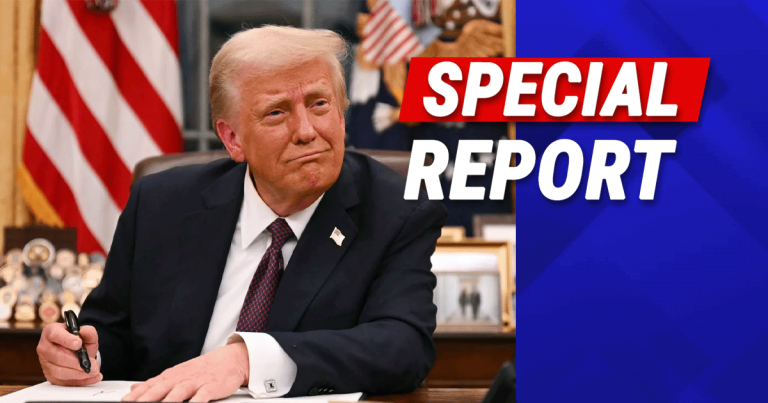
The political battle over election integrity reached new heights this week when President Donald Trump signed an executive order requiring proof of citizenship for voter registration across the United States. The order, which was signed on Tuesday, mandates government-issued documentation proving U.S. citizenship for voter registration in every state.
In response, the American Civil Liberties Union (ACLU) immediately announced plans to challenge the order in court. ACLU’s Voting Rights Project Director Sophia Lin Lakin declared that the organization “will see President Trump in court” over what she described as a “blatant overreach.”
No surprise there—the ACLU seems to oppose anything that might actually secure our elections.
The order conditions federal funding on states’ compliance with the proof-of-citizenship requirement. It represents one of Trump’s most significant actions to address election security concerns since returning to office.
Former Justice Department official John Yoo believes the ACLU’s legal challenge is destined for failure. Speaking on “America Reports,” Yoo predicted courts will ultimately side with the Trump administration based on established legal precedent.
Trump’s Election Security Order
“Free, fair, and honest elections unmarred by fraud, errors, or suspicion are fundamental to maintaining our constitutional Republic,” Trump wrote in his executive order. The measure aims to prevent non-citizens from participating in American elections.
The president characterized the action as historic.
“We believe this Executive Order is the farthest-reaching executive action taken in the history of the republic to secure our elections,” Trump wrote on Truth Social.
The order builds upon previous Republican efforts to strengthen citizenship verification in voting. In 2024, the House passed the Safeguard American Voter Eligibility (SAVE) Act with similar requirements, though it failed to advance in the Democrat-controlled Senate.
Trump’s order frames the issue as protecting American citizens’ fundamental right to have “their votes properly counted and tabulated, without illegal dilution.”
And honestly, who could reasonably argue against ensuring only citizens vote in our elections?
The ACLU has positioned itself as the primary opposition to Trump’s order. Lakin claimed that the requirement would “disenfranchise tens of millions of eligible voters.” She also alleged that it would “disproportionately impact historically-excluded communities.”
“President Trump’s executive order attempting to require documentary proof of citizenship for voter registration and restrict the acceptance of mail-in ballots received after Election Day, among other measures, is a blatant overreach that threatens to disenfranchise tens of millions of eligible voters,” she wrote.
According to Lakin, these affected groups would include “voters of color, naturalized citizens, people with disabilities, and the elderly.” The ACLU director additionally dismissed concerns about illegal voting. She called voter fraud a “myth” while promising the organization would “do everything in [its] power” to fight the order.
Why the ACLU Will Likely Lose
Yoo, who served in the Justice Department under President George H.W. Bush, explained why courts will likely reject the ACLU’s arguments.
“I think this argument from the ACLU is going to lose. These people make the same argument about states imposing voter ID requirements,” Yoo stated. “If you require a driver’s license, it’s going to affect some groups over other groups and the Supreme Court almost unanimously rejected that argument.”
The former DOJ official emphasized that requiring proof of citizenship is a “neutral rule” without discriminatory intent.
“In fact, you can again say the government’s just trying to enforce federal law that says noncitizens can’t vote,” Yoo added.
Legal precedent strongly favors such neutral requirements, with courts historically rejecting disparate impact arguments against voter identification laws. The Supreme Court has consistently upheld states’ ability to implement reasonable safeguards to protect election integrity.
The debate highlights the fundamental divide between those prioritizing ballot access and those focused on preventing potential fraud and ensuring only eligible citizens participate in American elections. I’ve always wondered why protecting the sanctity of our elections has become such a partisan issue.
Key Takeaways:
- Trump’s citizenship verification order fulfills a key campaign promise on election integrity.
- Former DOJ official John Yoo predicts courts will reject the ACLU’s challenge as similar arguments have failed before.
- The Supreme Court has historically upheld neutral voting requirements despite “disparate impact” claim.
- Requiring proof of citizenship protects legitimate voters from having their votes diluted.
Source: Daily Caller
